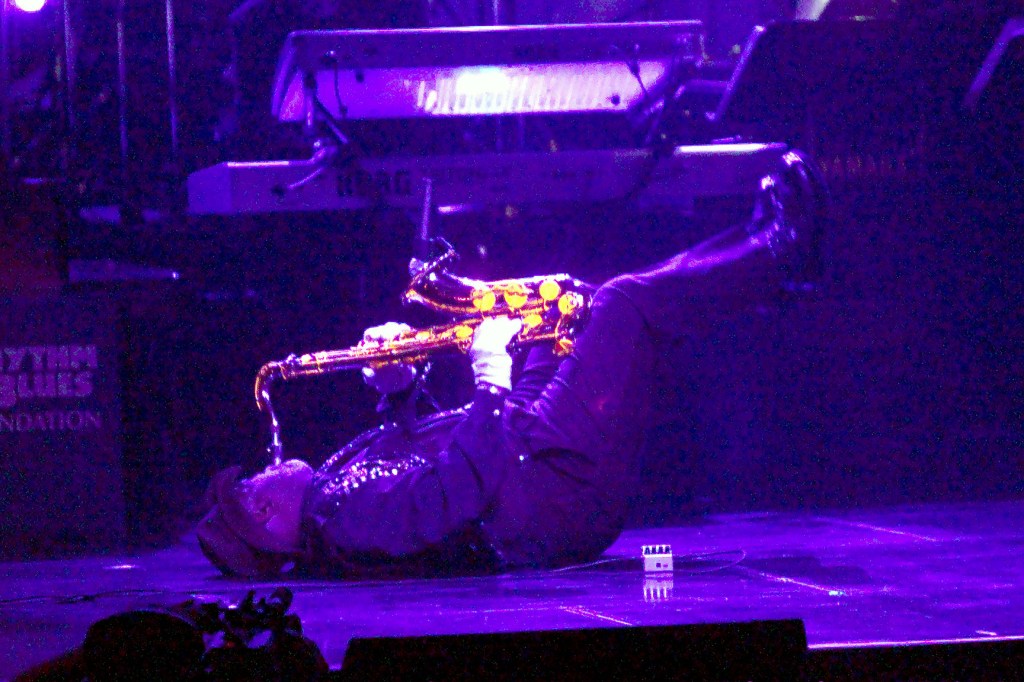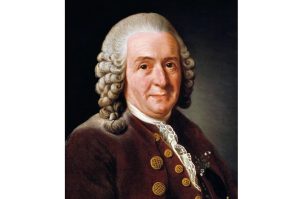If I had to define rock’n’roll in one sentence, it would be: ‘The Blues from the Forties, played by Country musicians in the Fifties.’ Which is to say, black music played by white people. In the Sixties, and almost entirely at the prompting of the Beatles, the Rolling Stones and other white foreigners, white Americans allowed themselves to be persuaded of the merits of black American music. This created a small heritage industry, summarised in a 1991 album title by one of its beneficiaries, Screamin’ Jay Hawkins, as Black Music For White People.
The black originators, ripped off once by R&B labels, and once again by the white impersonators, were granted the chance of being ripped off again by a new generation of promoters, selling their old hits to white audiences. It was a living, or at least a supplement to the menial livings that many originators had been forced to earn, after the Blues boom of the Sixties subsided, and Disco and the drum machine had marched in. Europe, where the whites were less racist and had better taste, had the biggest and most knowledgeable audiences. If you lived in a major western European city in the 1980s or 1990s, John Lee Hooker, Etta James and Screamin’ Jay Hawkins were regular visitors. So was that other human adjective, Big Jay McNeely, who died last weekend in Los Angeles at 91.
Walter Sickert defined genius as ‘self-preservation in a talent.’ McNeely was a genius of the tenor saxophone. Though music is a collaborative endeavour, McNeely can be said to have invented the rock’n’roll sax with ‘The Deacon’s Hop’ (1949). He preserved his talent, too, and with it the lineage of barnstormers and grandstanders that runs from the origins of the jazz saxophone to its twin apogees in the high-minded honking and squealing of late John Coltrane, and the stadium-friendly honking and squealing of the late Clarence Clemons. The technical tricks required to produce the honks and squeals are identical for both. Decide for yourself who you’d rather hear playing them.
McNeely is to rock-n’roll sax as Little Richard and Johnnie Johnson are to rock’n’roll piano: an inheritor who got robbed. There would have been no Clarence Clemons without McNeely. Nor would there have been a King Curtis, who scored big when white audiences started listening to black music in the Sixties. Nor even a Jimi Hendrix as we know him, for Hendrix, like so many others, cherrypicked McNeely’s stage act which, deploying every attention-grabbing, audience-inciting tactic known to the Chitlin Circuit, included McNeely writhing on his back, standing on the piano and walking over the tables, all the while blasting out the loudest blues he could.
There was more to McNeely than the act and the bull-elephant mating ritual of his blues. ‘The Deacon’s Hop’ is a distillation of the pumped-up style of the‘ Texas Tenors’: the hard, bluesy swing of Arnett Cobb, Buddy Tate, and especially Illinois Jacquet, with whom McNeely was sparring at the time he wrote ‘The Deacon’s Hop.’ It’s a dancing music, harder to play than it sounds; muscular like the Blues, but with the melodic and rhythmic grace of Jazz. There’s no room for error. One slip, and you lose the pressure that you’re building up. Every phrase has to speak to people.
McNeely was a jazzer by extraction, and remained one as he honked his way around the world. Born in 1927, he played in high school bands with pianist Hampton Hawes and saxophonist Sonny Criss, and he encountered Parker and Gillespie when they took their ill-fated California trip in 1947. He joined Johnny Otis, another criminally forgotten talent, then started playing under his own name on the small labels and unreliable stages that made ‘R&B’ stand for ‘Rip-Off & Bullshit.’ He was so good that, after leading dancers out of an LA club and into the street, he was arrested and charged with ‘inciting Mexicans.’
In 1959, McNeely made the R&B top 10 with ‘There Is Something On Your Mind’, a ballad featuring the vocals of doo-wopper Little Sonny Turner. McNeely’s solo has the feel of an obese man straining against a rented tux. He holds it in, just. Rock’n’roll stole McNeely’s show. By the early Sixties, he was doubling up as a mailman. He came back in the early Eighties on the endless revival and tribute circuit.
In a corner of the 100 Club in London, there is a photo on the wall from the mid-Nineties, showing a younger, slimmer me playing guitar behind Bettye Lavette. She was down on her luck, which is why she came to be playing with me. Not as far down on her luck as Barbara Lewis, the soul singer best known for the soul ballad ‘Hello, Stranger’ (#1 on the Billboard R&B chart in 1963, #3 on the ‘Pop’ chart). She hadn’t played in front of a real audience for so long that when she came on stage for the soundcheck, she set up a Casio keyboard and pressed a button for the accompaniment. Unable to attract audiences in the US, she had developed an occasional gig as a children’s entertainer.
And so it was that, through my tenor-playing brother Leo, I came to share a stage with Big Jay McNeely for four shows over two nights at the 100 Club in the summer of 1993. When I say share, I mean that we, his pick-up band, took up most of the stage with our gear while he, McNeely, spectacularly dressed in an all-black tie and tails, and a stupendously quiffed wig, totally ruled the band, the stage and the audience. This was as it had been, as it was, and as it always should be. McNeely came up the old way, when you have to fight for the stage and the audience. We were lucky to be anywhere near him.
We had done our homework, learning ‘The Deacon’s Hop’ and all the other boogie numbers, but at the soundcheck, McNeely called out ‘Bye Bye, Blackbird’, and very fast. We made a mess of ‘Blackbird’, and he looked furious. When it came to the show, he only played 12-bars, plus ‘There Is Something On Your Mind’; the business might have behaved disgracefully towards him but, as the ‘Bye Bye, Blackbird’ ambush showed, McNeely had maintained his standards. His disapproval incited us to play as well as we could, just as his records had incited us to play at all, and just as his playing had incited those Mexicans.
We worked hard on those two nights, and so did he; I think he approved. The club got so hot that brown drops of tobacco sweated out of the ceiling above the stage, dripping onto our faces and instruments. The second night was his birthday. In the break between shows, I put my head round the dressing room door to wish him many happy returns and bring him a brandy.
‘Bap… bap,’ he said, holding an imaginary guitar, and singing the rhythm that I’d been playing for the previous hour.
‘Bap…bap,’ I nodded. We were talking the language of ‘A-Wop-Bop-A-Loo-Bop,’ the ‘Vout’ of Slim Gaillard.
‘That’s it,’ McNeely said. He sipped the brandy. ‘You find it, and you keep going. Bap… bap.’
And then he closed his eyes and kept going, ‘Bap… bap, Bap… bap, Bap… bap,’ as if in a trance. He had started a 12-bar chorus, and it was an imperative, a matter of honour, to finish that 12-bar, just as it was an imperative to keep going once he had found the thread of the Blues, and a matter of honour to play it with everything he had, even when the business had turned its back. He reached the end of the chorus, stopped, opened his eyes again, and laughed. His music brought joy to millions, even if they had never heard his name, and it brought him joy too.
Dominic Green is Life & Arts Editor of Spectator USA.


















